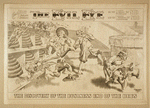It was difficult to think of a title for today's installment of this series, "Facing It." And so, at some point in the future, the title may be exchanged for something less dramatic. Below are three quotes from Annie Dillard's "Holy the Firm," an essay/story about a writer's quest to locate meaning in the tragic burning and disfigurement of a seven year old girl. The narrator conveys the extreme suffering of the child as well as her own agonizing quest to find an answer to a philosophical question: "What is God's relationship to the substance and experiences of this world?" If the question seems rather pedestrian, the sort of question on which people typically reflect (or worse, pontificate upon) in the aftermath of tragedy--the narrator's insights prove less so. She offers neither the voice of complete reassurance nor the voice of abjection.
The first quote links very closely to my two earlier entries, here and here, in which the role of the face is clearly a public one:
"How can people think that artists seek a name? A name, like a face, is something you have when you're not alone."
And here is the second:
"You might as well be a nun. You might as well be God's chaste bride, chased by plunderers to the high caves of solitude, to the hearthless rooms empty of voices, and of warm limbs hooking your heart to the world. Look how he loves you! Are you bandaged now, or loose in a sterilized room? Wait till they hand you a mirror, if you can hold one, and know what it means. That skinlessness, that black shroud of flesh in strips on your skull, is your veil. There are two kinds of nun, out of the cloister or in. You can serve or you can sing, and wreck your heart in prayer, working the world's hard work. Forget whistling: you have no lips for that, or for kissing the face of a man or a child. Learn Latin, and it please my Lord, learn the foolish downward look called Custody of the Eyes."
And finally, in a last segment, the narrator imaginatively assumes the sacrificial role for the young girl:
"Julie Norwich; I know. Surgeons will fix your face. This will all be a dream, an anecdote, something to tell your husband one night: I was burned. Or if you're scarred, you're scarred. People love the good not much less than the beautiful, and the happy as well, or even just the living, for the world of it all, and heart's home. You'll dress your own children, sticking their arms through the sleeves. Mornings you'll whistle, full of the pleasure of days, and afternoons this or that, and nights cry love. So live. I'll be the nun for you. I am now."
--Annie Dillard, "Holy the Firm" (1977)
Wednesday, October 28, 2009
Facing It Part IV: Faith / Face
Labels:
faces,
fire,
God or Gods,
monks/nuns/religious persons,
philosophy
Subscribe to:
Post Comments (Atom)






No comments:
Post a Comment